Starting this month, a new Hawaii law will be enforced for all Hawaii-branded coffees and products. The change mandates clearly advising consumers about where the coffee was grown, and the percentage of Hawaii-grown coffee versus other coffee. As of this month, any products labeled as 100% Hawaiian must now be entirely grown and processed in Hawaii.
Did you buy coffee at these stores? The $21 Million settlement on fake Kona coffee included them.
The lawsuit exposed that many products contained little to no authentic Kona coffee. This settlement, coupled with the new labeling rules, underscores Hawaii’s commitment to preserving the integrity of its coffee industry.
The companies that misrepresented Hawaii coffee included Kroger, Safeway/Albertsons, Hawaiian Isles Kona Coffee Company, Gold Coffee Roasters, Cameron’s Coffee/Boyer’s Coffee Company, and ABC Stores. These companies were found to have falsely labeled their products as containing authentic Kona coffee beans.
Here’s what visitors can expect now when buying Hawaii Coffee.
First, the coffee’s front label must state the location source, and weight percentage of all coffee beans. That includes all ready-to-drink, single-serve, and bulk coffee. You won’t be able to miss this information, as the origin and content percentage must be in a font that’s at least half the size of the product’s identity.
While the Act increases inspection of retail shelves statewide, the lack of additional inspection staff means reliance on complaint-driven enforcement. So visitors should remain aware. Retailers must ensure compliance or face stiff penalties. Consumers should report suspected mislabeling or non-compliance to the Hawaii Department of Agriculture’s Measurement Standards Branch.
Good news for Hawaii coffee aficionados and the Hawaii coffee industry.
These new regulations are expected to boost transparency and authenticity, helping to give buyers assurance about the origin and quality of the coffee they purchase. The law will help protect local coffee farmers by preventing the dilution of Hawaii coffee branding with non-Hawaii beans.
Research indicates that other regions with famous coffee brands are implementing similar strict labeling laws. For example, Colombia is moving to protect the “Café de Colombia” brand, ensuring that products labeled as such are genuinely Colombian. This global trend towards stricter coffee labeling is indicative of a growing consumer demand for authenticity and quality in coffee products.
The recent settlement combined with this month’s labeling law marks a step toward ensuring Hawaii coffee is really Hawaii coffee. If you know of any mislabeling or see non-compliance, email the state at [email protected] or call (808) 832-0690.
Our related articles:
- Fake Kona Coffee: $21 Million Settlement Hits Major Brands
- It’s More Than Kona Coffee: A Coffee Lover’s Hawaii Guide
Get Breaking Hawaii Travel News
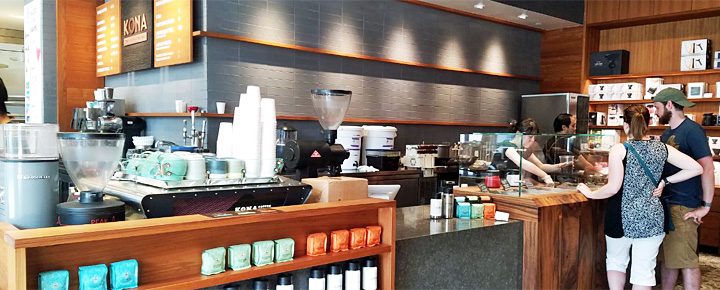
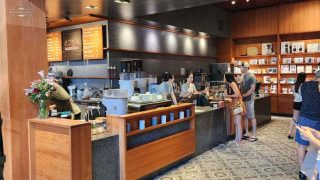
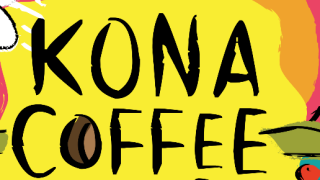
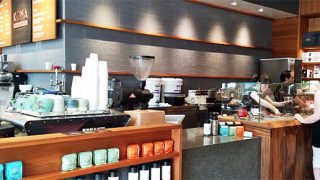
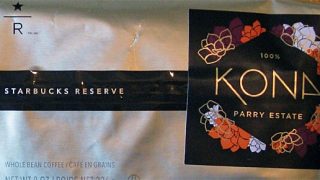
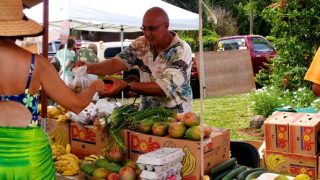
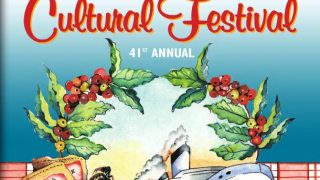
Kona is a nice, light, floral coffee but not strong enough for my taste. I’m a fan of Jamaica Blue Mountain Coffee. Pricey but very nice now and then. Honestly, Community Whole Bean Dark Roast coffee roasted in Baton Rouge Louisiana since 1919 is what I regularly drink. Economical and very good. However, there’s no such thing as “Bad” coffee in my book!
Happy Roasting!
Once again Rob+Jeff, you have come up with a great report on current news. I always buy coffee beans when I am there to bring back to enjoy at home. James B gave a wonderful lesson on coffee which was informative. I am going to store my beans very carefully to preserve the wonderful flavor. Amy suggestions on that? Mahalo nui loa!!!
Fake Hawaiian coffee? No… I avoid Starbucks for years. You should too.
Yet fake Kona joins the leagues of fake boobs, blondes, rumps, tans, etc. that mainlanders luv & try to keep up in a fake society but just end up looking Orange.
After tasting, enjoying and purchasing coffee directly from the Kauai Coffee Company on island, I was excited to find it at several local San Diego food stores. They do state on the packing the % off the beans that are from Kauai! So they have been upfront for many years. I appreciate the truth in advertising and of course love the taste!!!
Lived on the BI for 25 years and traveled to all the isles. Coffee is my passion as a green buyer only, home roaster and pulled through an espresso machine. My take on Hawaii coffee:
Ka’u – Newish to the coffee world, this scores as the #1 varietal. The roast at medium is rich, earthy, full-bodied and leaves notes of chocolate and a little cinnamon.
Kona – If you enjoy a mild, but complex coffee, this fan favorite is probably for you. I don’t roast it because it’s subtlety doesn’t hold up under espresso pressure.
Moloka’i- This one is hit or miss for me. Don’t know if it’s the growers and lack of west side water, but one batch will be good, the next will be uneven.
Kauai- As Kathi noted, roasted bags everywhere, including Costco. Kauai growers use only machine planting and harvesting over thousands of acres, both maka’i and mauka. This method and climate variability means you get ripe and under ripe beans, which means bad beans mixed with good beans.
Hi James.
Thanks for that. Not sure if knew that we are both coffee roasters too. For over 20 years.
Aloha.
Welcome to the world of the coffee snobs! In reality, though most people don’t know, roasted coffee begins to lose essential oils and flavor after two weeks. Roasted, bagged coffee is usually dead coffee by the time you finish the bag. Fresh roasting green beans and using it within ~three days is ideal. Also, another little known fact: the lighter the roast the higher the caffeine content. Those Starbucks lattes with burnt (dark roasted) coffee has lost all the essential oils while not supplying the buzz from a light-medium roast.